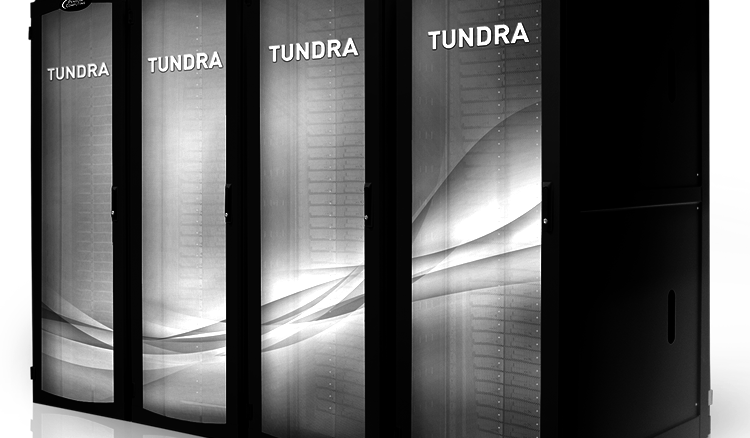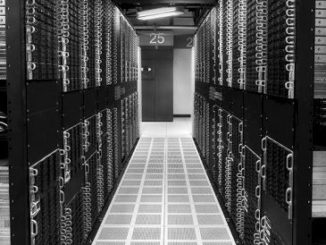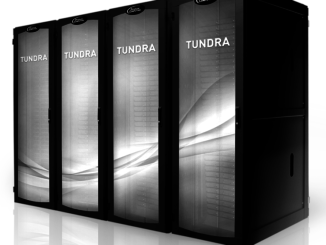
As history reveals, building a thriving systems business in HPC is no simple task. It takes ingenuity – and financial gymnastics – to balance books that reflect massive upfront investments in hardware with the promise of future returns, not to mention significant funds put toward research and development to stay at the bleeding edge.
There are few better companies to watch at this balancing act than Cray, since it is a public company and tends to take down huge national lab deals at scattered intervals, but we used to see similar precarious financials from SGI before it were acquired by Hewlett Packard Enterprise. Yet another tale of delicate financial balance in HPC emerged this week with news that Smart Global Holdings, a public company that is a niche player in the server and mobile memory business, has plucked up Penguin Computing, one of the tier two supercomputer makers that makes a living selling open source software and sometimes open source hardware under the Open Compute Project badge.
Penguin got its start twenty years ago to feed the systems business that emerged with the rise of the open source Linux operating system and clusters aimed at supercomputing workloads that were based on it and a slew of other add-ons such as Beowulf clustering. The company evolved to meet other needs in HPC by offering a cloud for high performance computing workloads, its own Scyld workload management suite (acquired in 2003) among many other custom built tools, and more recently, an AI business that has captured some big wins, according to Tom Coull, chief executive officer at Penguin Computing, who spoke during an investor call about the acquisition.
The size of Penguin’s AI business might surprise people. “We run some of the largest AI machine on the planet for our customers,” explained Coull. “One machine in particular, installed later this year, will be one of the largest supercomputers in the United States. So we have developed expertise to not only design and build those machines, but to set them up, host them, maintain them for a couple of years, and provide managed services as well.”
Ajay Shah, chairman and chief executive officer at Smart, added that depending on the quarter, somewhere between 30 percent and 40 percent of Penguin’s revenues were derived from sales of AI systems and capacity of GPU-accelerated iron on its Penguin On Demand (POD) HPC cloud service. It is that AI expertise, which is derived from and informed by Penguin’s expertise in traditional HPC simulation and modeling systems, that has compelled Smart to shell out $85 million to acquire Penguin.
“AI platforms are quite different from the standard computing platforms that you have seen in the past, said Shah. “They tend to have more configurations for specific application requirements and they tend to have a different performance requirement than the standard server. As a result, there are quite a few applications for specialty memory products in those areas that we look to develop jointly with the Smart and Penguin teams. In the short, short term, Penguin’s revenue has been a bit constrained by capital and funding requirements.”
This is a story we see time and again, particularly in the HPC arena where vendors have to buy lots of processors, motherboards, memory sticks, flash cards, disk drives, and network adapters to build a machine and then wait for qualification and testing of applications and acceptance by the customer to be paid. In every other server market, be it hyperscalers, cloud builders, or enterprises, you have to pay to get equipment and software when you receive it and you don’t get to change your mind without a legal hassle or at least a credible threat of one. All other server makers get to book revenues on shipment, but not so in the supercomputer racket. They have to wait months and months and months, and it locks up capital. Moreover, to chase big deals takes big piles of cash – this is one reason why Cray has Intel as the prime contractor on its biggest deals, why IBM can still take down big deals, why Bull became part of Atos, and why SGI was absorbed into HPE. When big machines cost $50 million to $100 million, these companies could invest in the hardware and do deals, but today, when pre-exascale machines cost $400 million to $600 million and even more in some cases – that is more than their annual revenue in a lot of cases – they can’t do the deal.
As part of the deal, given that Smart Global is a public company traded on the Nasdaq exchange, some financials for Penguin has to be released as part of the announcement of the acquisition because they are material to Smart Global’s own financial results. These are interesting indeed. In 2017, Penguin had $166.5 million in revenues and brought $30.4 million of that down as gross profits, which is 18.3 percent of revenue. After paying taxes and doing depreciation and amortization, Penguin brought down $5.9 million, or 3.5 percent of revenue, in as net income. This is about the same level that ODMs such as Quanta Computer and Foxconn deliver, but they have tens of billions of dollars in revenues each year and it is also on par with a very successful retailer. Smart Global also divulged some financial results for Penguin’s first quarter ended in March, with some year-on-year growth comparisons that were not provided for the full 2017 year (which would have been useful, to be sure). In any event, in the first quarter, Penguin’s revenues rose by 80.3 percent to $48.5 million, gross profits rose by 77.6 percent to $10.3 million, and net income quintupled to $2 million. It is hard to say how representative this quarter is for how Penguin might have expected the full 2018 to turn out.
Smart Global counts Cisco Systems, Dell, HPE, Lenovo, and Samsung as its largest customers, and it has a very good lock on the market for server and PC memory as well as mobile device memory in Brazil. The company sells specialty memory products in the networking and telecom, server and storage, industrial, aerospace, defense, and medical equipment markets. This specialty memory business grew by 26 percent in Smart Global’s fiscal 2017 year ended in August, hitting $363 million. This business represents about 40 percent of the company’s trailing twelve month revenues. In the past four quarters ending in February, Smart Global has booked over $1 billion in revenues, up 60.9 percent, and that makes it six times larger than Penguin.
Obviously, as part of the deal, Penguin will have access to what could be significantly cheaper main memory than its server rivals can offer, and we all know how DRAM and flash memory prices have skyrocketed in the past 18 months. This is one of the factors that is driving Smart Global’s revenue and profit profile.
Under the terms of the acquisition, Smart Global is hitting its credit facility for $60 million to buy all of Penguin, and it has promised a payment of another $25 million to the Penguin shareholders if they meet certain – but not revealed – gross margin targets by the end of calendar 2018. When all is said and done, the new Specialty Compute and Storage Solutions group at Smart Global will take that custom memory and Penguin business and merge their books, but the Penguin business will be operated separately as a wholly owned subsidiary. The Brazilian PC, server, and mobile business will represent about half of its revenues then, and the SCSS group will be the other half.
Penguin, you will recall, won a $39 million deal, called CTS-1, in 2015 to install commodity systems with an aggregate of 7 petaflops of capacity at the Tri-Labs facilities – that’s Lawrence Livermore National Laboratory, Sandia National Laboratories, and Los Alamos National Laboratory – run by the US Department of Energy. We took a detailed look at these systems back in August 2017. It is reasonable to speculate that Penguin needed to embiggen itself to take down the next CTS-2 deal, slated for 2020 or 2021, if it is indeed in the running.





Be the first to comment